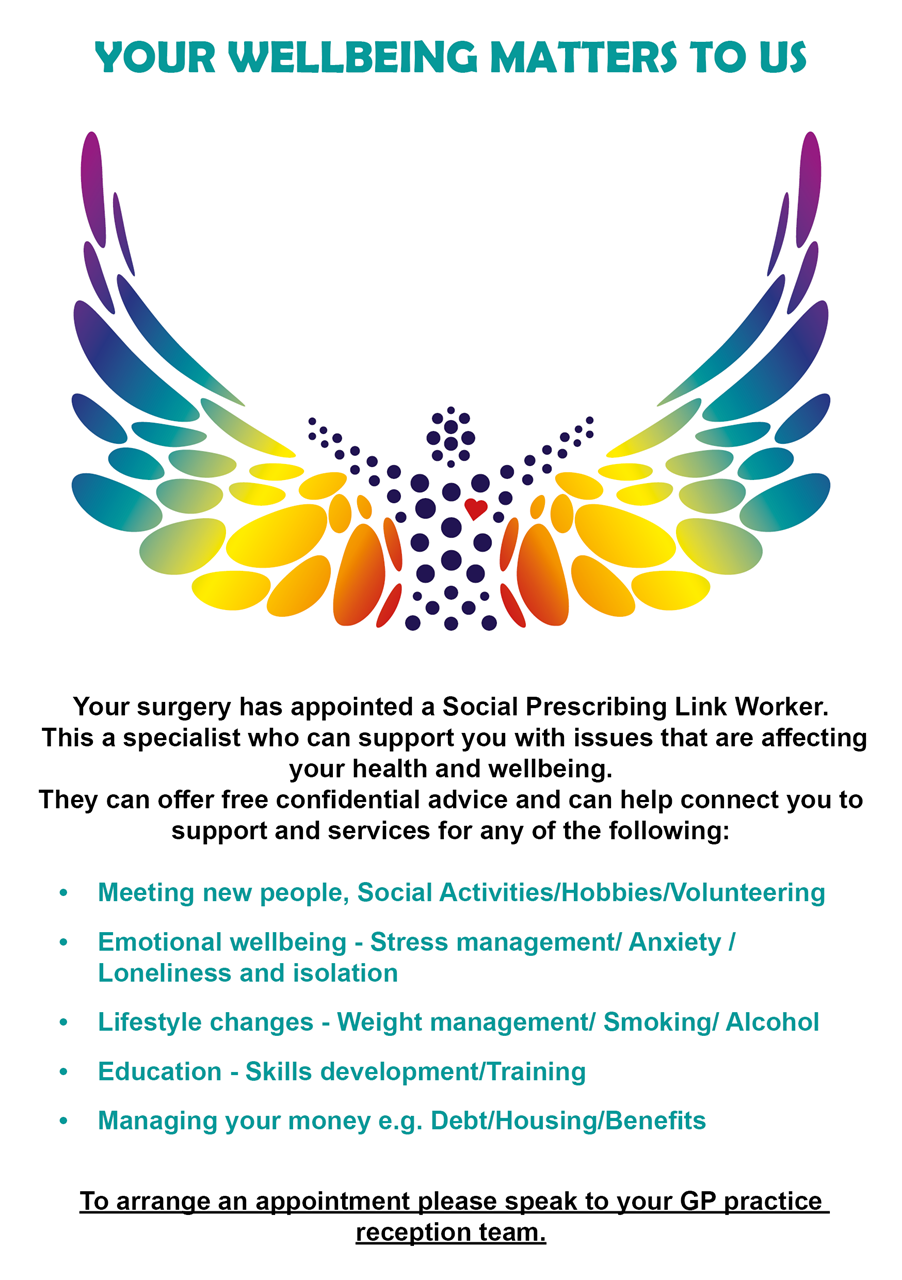Social Prescribing

Let’s talk about Social Prescribing
Who is the Social Prescriber for the Boroughbury and Paston PCN?
My name is Tracy Stanton. I am based across Boroughbury Medical Centre and Paston Health Centre. Where I am based does not make a difference to where I see the patients as I will travel to where is most convenient for you. Whether I see you within your local surgery, at home, a venue in the community or even for a walk; the most important factor is that you want to improve things for yourself and you feel relaxed and ready to chat.
What is Social Prescribing?
Social Prescribers can be based within local GP surgeries, as I am, but many are based within the voluntary sector and community groups. Motivational Interviewing sums up Social Prescribing as Social Prescribers actively listen to the patient, talk with them and explain in a non-judgemental way. Social Prescribers either make referrals on your behalf, or give you the information needed to do this for yourself. Social Prescribers do a lot of research to find the best resources to pass on to their patients. They also give presentations to organisations or community groups to promote the Social Prescribing service.
The ethos of Social Prescribing is personal empowerment; to help patients gain a better understanding of themselves, to encourage them to have the confidence to make positive changes, and to get the best out of the environment they live in. In short, how to provide better in order to live better.
What is the purpose of Social Prescribing?
The purpose of Social Prescribing is to provide any patient aged eighteen or over with the necessary services, knowledge and provisions to enhance their wellbeing and help them manage their lives more proficiently to reduce the need for medical intervention.
How do we do this?
Social Prescribing seeks to empower the patient to make wise choices. Initially this may be by providing them with services and details of the organisations they may need – and making referrals on their behalf if needed – but further sessions are designed to motivate them to learn the skills and gain confidence to do more for themselves, such as making their own referrals to agencies and gain services for themselves in the future. Each session will either be face-to-face, telephone or via other media, and will take place either in the surgery, out in the community or in their home at the patient’s choosing, and will last for any time between five minutes and an hour.
The ultimate aim of Social Prescribing is for the patient to become fully self-proficient, having learnt how to obtain appropriate tools to manage their own health and care needs well, subsequently leading to a reduction in surgery visits.
How long would Social Prescribing support a patient?
As Social Prescribers we will support a patient for as long as they need it. The patient will guide how many sessions are beneficial to them up to a maximum of twelve, but most patients have been equipped by four sessions and many will only need one. These sessions will most certainly include research of some kind to tailor the referral to the patient’s specific needs.
What is the referral process?
The only way a referral is made is if you are a patient of one of the surgeries that is part of the Boroughbury and Paston PCN. If you are, simply ask anyone at the surgery, such as receptionists or clinical staff, to get in touch with the social prescriber. We only need very brief details of what the issue is as the social prescriber will contact you directly to find out more.
Social Prescribing is useful for help and support with or for:
- Advocacy and advice
- Befriending
- Bereavement
- Carers
- Community Services
- Dementia and other conditions
- Disability
- Family and children
- Finance, debt and benefits
- Health and exercise
- Housing, household maintenance and improvements
- Lifeline
- Mental health
- Older age
- Social and learning activities
- Transport
- Volunteering
…and much more besides, including just the need to talk and express a concern.